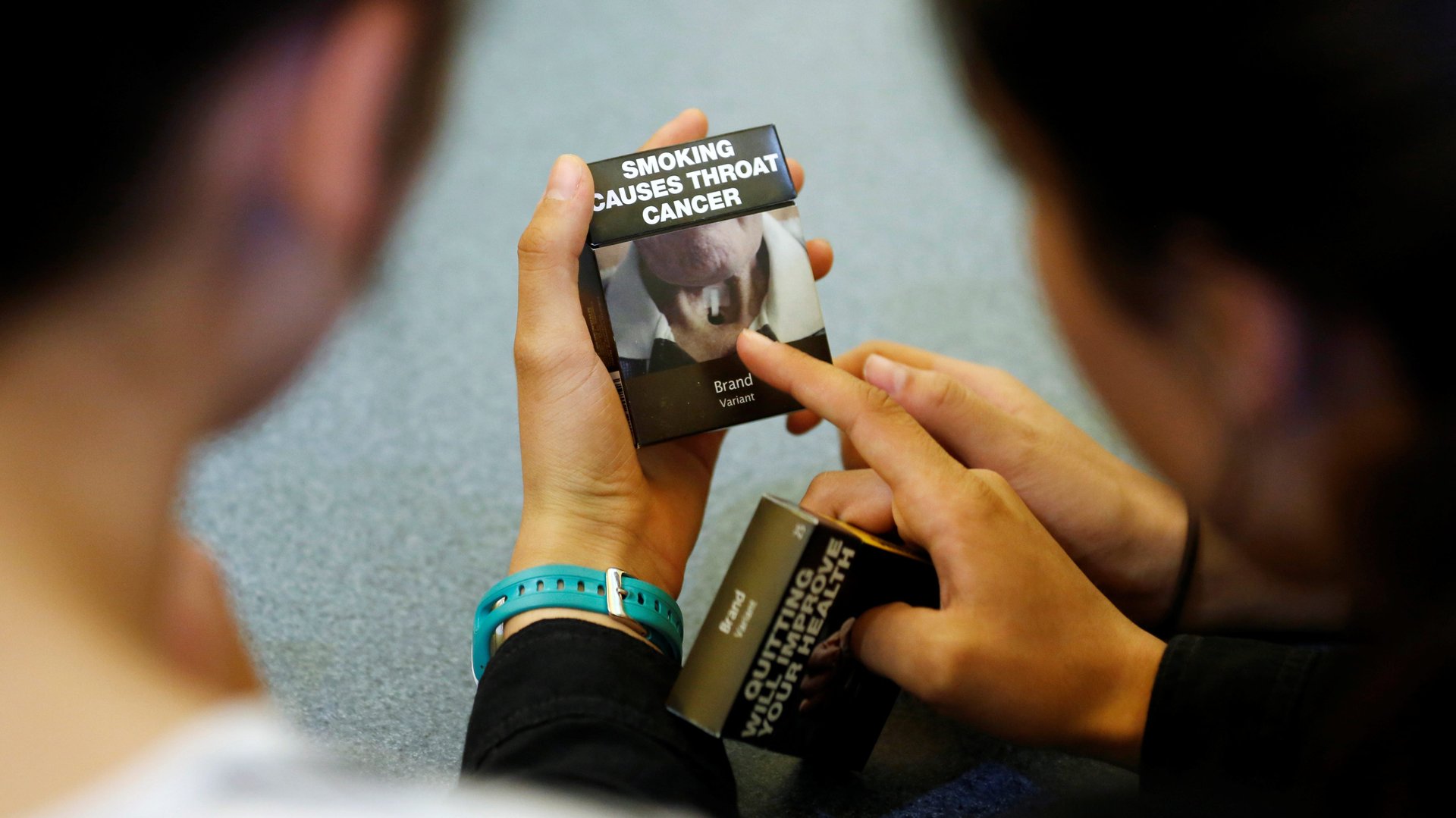Australia found the Achilles’ heel of tobacco companies, and a record number of smokers quit
Putting health warnings on cigarette packets reduces smoking (pdf). But what you take off a packet may be just as important as what you put on it. In 2012, Australia became the first country in the world to make tobacco companies strip their branding off products, leaving nothing but drab packaging covered with graphic health warnings. A recent study shows that this too has encouraged smokers to quit by reducing their affinity with specific brands.


Putting health warnings on cigarette packets reduces smoking (pdf). But what you take off a packet may be just as important as what you put on it. In 2012, Australia became the first country in the world to make tobacco companies strip their branding off products, leaving nothing but drab packaging covered with graphic health warnings. A recent study shows that this too has encouraged smokers to quit by reducing their affinity with specific brands.
The researchers, psychologists at Australian National University and the University of Queensland, suggest that as smoking has become stigmatized, tobacco companies have increasingly relied on brand identity to reach customers. “Smokers are now viewed by many as unhealthy, unattractive, and even dirty,” the researchers write, but identifying with a particular brand “deflects the negative connotations” of being seen as a smoker and “may help to define the self with more positive content (e.g. ‘Winboro Woman’ can be sassy, independent and minty fresh).”
Moreover, as Australia banned tobacco advertising in 1992, packaging was the only avenue left for tobacco companies to distinguish their brand identity.
After the introduction of plain packaging, smokers were less likely to identify with a specific brand and were less likely to positively rate smokers of that brand, according to the study. They also smoked less, made more attempts to quit, and increased their intentions of quitting. The study, published in the journal Addictive Behaviors Reports, surveyed 178 smokers immediately before and seven months after branded packaging was outlawed.
The findings reflect previous research showing a record decline in tobacco consumption after plain packaging was introduced. Smokers fell from 19.4% of Australia’s population 34 months before the packaging was introduced to 17.2% by 34 months afterwards; the government says the plain packaging accounted for one quarter of that decrease (paywall).
In 2016, the UK and France have followed Australia’s lead in introducing plain tobacco packaging. Four of the world’s largest tobacco companies sued the UK’s decision, but arguments that the change won’t lead to a reduction in smoking fell flat.